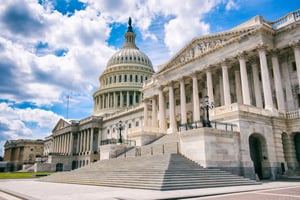The Texas Medical Association (TMA) continues to lead the charge for fair implementation of the No...
Texas Medical Association Files Fourth Lawsuit Against No Surprises Act Over Arbitration Fees Hike
With skyrocketing administrative costs threatening healthcare providers ability to offer adequate care for patients, the Texas Medical Association (TMA) has increasingly stepped-up legal efforts in response. Their fourth lawsuit against these fees could prove critical in protecting healthcare providers - and those they serve across Texas - from surprise billing that pushes mounting expenses onto both parties. It's an issue requiring immediate attention: according to a Jan 31 TMA press release, the No Surprises Act is driving arbitrary fee hikes while simultaneously limiting provider arbitration recourse with insurers who offer insufficient payment amounts for services rendered.
The Issue at Hand
The No Surprises Act seeks to protect patients from surprise billing, which occurs when patients are charged an amount not covered by their insurance company. It also seeks to protect healthcare providers who often receive lower than expected payments for their services. However, the recent fee hikes have made it difficult for healthcare providers to seek arbitration when they feel an insurer has offered insufficient payment for care. According to a Jan. 31 TMA news release, federal agencies announced in October that the administrative fees would remain $50 in 2023; however, two months later they announced that it would increase to $350 beginning in January 2023. This means that most small practices may find themselves unable to afford accessing dispute resolutions through lawyers or other legal channels due to the high fees associated with them.
Why TMA’s Lawsuit Matters
The Texas Medical Association's lawsuit argues that this drastic fee increase restricts many physicians' ability to seek arbitration and thus limits their ability to fight back against insurers who refuse fair payments for care. In addition, the fee hike could potentially lead some physicians into financial ruin as they struggle with these added costs while trying to run their practice and care for patients. It is critical that these fees remain low enough so that all practices can access dispute resolutions regardless of size or specialty if necessary.
Conclusion:
TMA’s fourth lawsuit against the federal No Surprises Act challenges a 600 percent fee hike when seeking dispute resolutions and argues that this will restrict many physicians’ ability to access such resolution methods due to cost constraints. If successful, this lawsuit could help pave the way for more equitable reimbursement policies across medical practices of all sizes and specialties—and ensure better patient outcomes through improved access to quality care. It is vital that healthcare providers stay informed about changes like these so they can make sure they get paid what they deserve while providing quality care for their patients.






